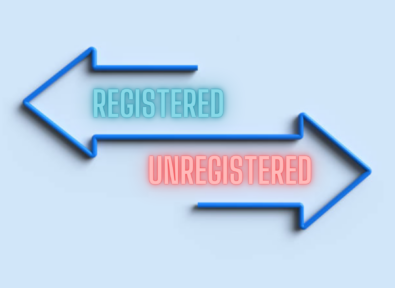Mark your calendars for 3 October 2024, as it’s set to be a significant day for the National Disability Insurance Scheme (NDIS) and all its participants. On this day, several of the federal government’s new legislative changes to the NDIS will come into effect. These are some of the most substantial updates since the Scheme began, aiming to strengthen the NDIS and enhance the experience for people with disabilities.
At Care to Change, we understand that navigating these changes might feel overwhelming. But don’t worry we are here to help you understand what these updates mean for you and are continuing to monitor the changes.
What’s Happening on 3 October 2024?
On this date, new federal legislation affecting the NDIS will come into effect. Some changes will be immediate, while others will roll out over time. The key areas impacted include:
- Eligibility Assessments: Updates to how you qualify for the NDIS.
- Funded Supports: Clear definitions of what the NDIS will fund.
- Plan Management: Changes to how your NDIS plan is organised and managed.
- Funding Allocation: Adjustments to how your funding is allocated and spent.
- Information Requirements: New guidelines on providing information for eligibility reassessments.
How the New Legislation Will Affect You
1. New Definition of NDIS Supports
Starting 3 October 2024, the NDIS will only fund supports related to the impairment(s) specified in your access request. This means there will be a new definition of NDIS supports, clearly outlining:
- What you can spend your NDIS funds on
- What you are not allowed to spend your NDIS funds on
Initially, a draft list will be used while the government finalises the definitions with input from states and territories. The NDIS will notify you once the final list is available.
We’re here to help you understand these new definitions and how they apply to your plan. Feel free to reach out with any questions!
If you would like to have a look at this list in its current draft click here.
2. New Total Budget Amounts
For plans approved after 3 October 2024, you’ll notice a shift from detailed line items to a total budget amount. This means your plan will show a total amount for all supports, making it easier to understand how much funding you have and how long it needs to last. Remember, you can’t spend more than what’s allocated in your plan.
Additionally, all new plans created after this date will be for 12 months only.
3. Plan Management Decisions
Starting on 3 October, the NDIS will have the authority to change how your plan is managed if Funds are not used as intended. If you, your nominee, or your plan manager aren’t using your funds according to your plan the NDIA will now be able to change the way your plan is managed, for example from Plan Managed or Self-Managed to NDIA Managed.
4. New Claims and Payments Framework
In the future, all claims must be made within two years of providing the support. For the first 12 months after the new laws take effect, the NDIS will honour all claims for supports provided before 3 October 2024.
Example:
- If you submit an invoice on 1 October 2025 for a service delivered 2.5 years ago, the NDIS will accept the claim.
- If you submit the same invoice on or after 3 October 2025, the claim will not be accepted because the service was provided more than two years prior.
Please note: Regardless of when an invoice is received or submitted, the new rules around excluded services apply to any claims for services provided on or after 3 October 2024.
The government will establish a claims and payments framework to provide clarity on how NDIS claims should be made. Where possible we’ll keep you updated as we learn more.
5. Requests for Information and Revoking Your Plan
The NDIS may request specific information or require you to take certain actions, like undergoing an assessment, if it’s considering revoking your status as a participant. If you do not comply within 90 days or do not have a reasonable excuse, the NDIS may revoke your access to the Scheme.
6. New Planning Process
There will be a new planning process explaining how people can access the NDIS, how their needs are assessed, and how flexible budgets are created, an implementation date regarding this is yet to be determined as the NDIS need to formulate the rules and guidelines. Key points include:
- Assessing Needs: A new way to determine your support needs.
- Flexible Budgets: Creating budgets that adapt to your situation.
- Additional Funding: Extra funds will only be added in specific situations like emergencies.
Since the new planning process is yet to be created, there are no immediate changes. Existing participants will transition to new plans over time, and we’ll guide you through this process when it begins.
7. Introduction of Impairment Notices
An impairment notice will be issued by the NDIA and will confirm that you have a permanent disability or significant impairment. It will list the impairment(s) that meet the disability and/or early intervention requirements.
From 1 January 2025:
- All new participants accepted into the NDIS will receive an impairment notice.
- Existing participants will receive an impairment notice when they transition to a new plan.
This change acknowledges that people with the same diagnoses may have different support needs.
8. Accessing the NDIS – Disability Requirements
Prospective participants will receive more detailed information about their access decision when they join the NDIS. The disability and/or early intervention requirements have been updated to clarify that a person should only access the NDIS if they require supports that are NDIS supports. This helps define when mainstream systems like the health system are responsible for providing support.
This change will impact:
- People applying to access the NDIS.
- Existing participants undergoing eligibility reassessment.
If your status as a participant is revoked and you request a review of that decision, you cannot make another access request until your review is complete.
How Care to Change Can Help You Navigate These Changes
We know that changes like these can be confusing, but you don’t have to go through them alone. At Care to Change, we’re dedicated to helping you understand and adapt to the new NDIS processes.
Personal Consultations
Our knowledgeable team is ready to discuss how these changes may affect your individual situation. We’ll help you understand what the updates mean for you.
Plan Reviews
We can assist you in reviewing your current NDIS plan to identify any adjustments that may be needed under the new rules.
Advocacy and Support
We’re committed to advocating on your behalf. We’ll make sure your needs and preferences are clearly communicated to the NDIS and help you navigate any challenges.
What You Can Do Now
To prepare for these upcoming changes, we recommend:
- Reviewing Your Current Plan: Take a look at your supports to see how they align with the new definitions.
- Staying Informed: Keep an eye on communications from the NDIS and updates from us.
- Reaching Out to Us: We’re here to help with any concerns or clarifications.
We’re here to make this transition as smooth as possible for you. If you have any questions or need assistance, please don’t hesitate to get in touch.
Final Thoughts
Change can be challenging, but with the right support, it can lead to better opportunities and outcomes. At Care to Change, we’re committed to helping you navigate these NDIS updates so you can continue to receive the support you need.
Remember, we’re in this together. Care to Change is here to help—just reach out, and we’ll be happy to assist you.
Disclaimer: This blog post is intended to provide general information about the NDIS changes effective from 3 October 2024. For specific advice tailored to your situation, please contact us directly or consult the official NDIS website.


